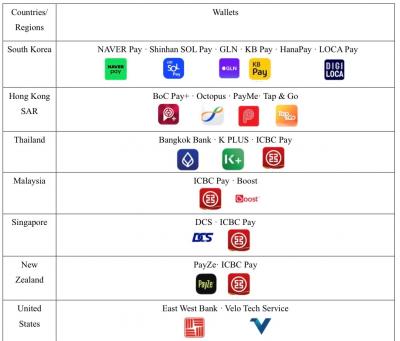APAC cities continue to be some of the world's most connected and prominent as emerging hubs in South Asia gain ground
Administrator Rabu, 22 November 2023 16:27 WIB

SINGAPORE - 21 November 2023 - Asia Pacific (APAC) cities, spearheaded by Tokyo, Beijing, Singapore, Melbourne, and Hong Kong, continue to assert their influence as some of the world's most connected and prominent urban centers, according to Kearney's 2023 Global Cities Report. The report reveals that APAC maintains a strong foothold in the top 10 of its Global Cities Index (GCI), claiming five coveted spots.
Kearney's 2023 Global Cities Report also finds that social, geopolitical, and technological transformations are actively disrupting the traditional hierarchy of global cities, creating a more widely distributed geography of opportunity. It finds that global city leaders face ever-greater competition from emerging hubs, with those taking a regenerative approach poised to lead in the attraction of talent, innovation, and investment. This is particularly the case for South Asian cities that have surged notably in rankings. Specifically, Mumbai (+7), New Delhi (+7), Dhaka (+7), Lahore (+5), and Hyderabad (+4) have shown significant improvements.
Global Cities Index
The GCI seeks to quantify the extent to which a city can attract, retain, and generate global flows of capital, people, and ideas. Cities are measured against five key dimensions: Human Capital, Information Exchange, Cultural Experience, Political Engagement, and Business Activity. Average GCI scores have leveled off following several years of decline; the Human Capital dimension witnessed a significant rise due to the return of the international movement of people to pre-pandemic levels, counter-balancing the continued decline of the Business Activity dimension as a result of persistent economic challenges.
New York, London, Paris, Tokyo, and Beijing retained the top five spots respectively. Brussels, Singapore, Los Angeles, Melbourne and Hong Kong complete the top 10.
"This year, our study indicates that the world has entered a phase of globalization that is less uniform and more networked. The resilience of overall scores highlights the perennial significance of global cities as essential hubs of flexible connectivity and concentrated global diversity in a shifting geopolitical landscape," comments Arjun Sethi, APAC Region Chair at Kearney.
He adds: "But this year's study also shows how balanced geopolitical and geoeconomic positioning has made emerging hubs, including those in South Asia, increasingly attractive to capital, trade, and people. Overall, cities in APAC have been able to narrow the gap between themselves and more established global city leaders, with those taking a regenerative approach leading in the attraction of talent, innovation, and investment."
Global Cities Outlook
While the GCI captures the current state of global city leadership, the Global Cities Outlook (GCO) aims to identify those cities most likely to achieve global prominence in the future. Here, the emergence of a distributed geography of opportunity was also present.
While European cities maintained a strong presence in the top 30 rankings, Asia's global hubs including Seoul, Osaka, and Chennai made significant strides. As the rapid advancement of artificial intelligence (AI) and related technologies continues, the intersection of this trend with the already-underway shift toward remote work is expected to further reduce the significance of physical proximity in domains traditionally linked to major cities, potentially causing even greater disruption to global cities.
"In this shifting global landscape of distributed opportunity, top-tier global cities cannot take their positions for granted. The traditional hierarchy of leading cities will only become more fluid in the future as opportunities for growth and enhanced productivity become less concentrated during the coming waves of AI-driven innovation," Arjun Sethi posits.
"Those cities that adopt a regenerative model - one that moves beyond resilience and thinks proactively - will have a competitive advantage," he concludes.
About Kearney
Kearney is a leading global management consulting firm with deep-rooted expertise in strategic transformation. We work with more than three-quarters of the Fortune Global 500, as well as with government bodies and non-profit organizations. As a global consulting partnership in more than 40 countries, our people make us who we are. We're individuals who take as much joy from those we work with as the work itself. Driven to be the difference between a big idea and making it happen. We work alongside our clients to regenerate their businesses to create a future that works for everyone.
To learn more about Kearney, please visit www.kearney.com.
The issuer is solely responsible for the content of this announcement.
Hashtags: #Kearney #GlobalCitiesReport #Regenerative
Berita Terkait
Komentar
0 Komentar
Silakan Login untuk memberikan komentar.
FB Comments






